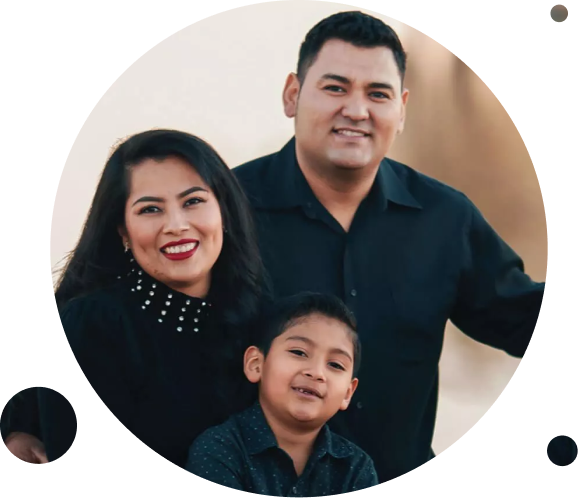How to Start Genealogy Research

Family history, or genealogy, is the unique process of looking through records to find information about your relatives and using those records to link individuals to other generations. The primary rule of genealogy is to work deductively- so from the known all the way to the unknown. This is usually done to avoid attaching the wrong person to your family tree, and the following steps explain the genealogical process in greater detail to help you conduct a successful genealogical search.
Identify What You Know
The first step to beginning genealogical research is to identify what is already evident to you. Take the important pieces of genealogical information such as relationships, names and dates of birth. The best way to do this is to speak to your relatives about what they remember from their past, as they will most likely know a lot of useful information that they would love to share with you. They will bring you a lot closer to putting together your family tree.
Write Down All the Information You Know
Commencing your research is as easy as buying a notebook and writing down everything you know. A lot of genealogy apps will generate forms in a few basic formats such as research logs, multi-generational charts and the sources that are already available.
Interview Your Relatives
Asking your relatives is the best way to understand your family tree, they will tell you interesting stories about the past that will decipher a lot of the questions that you probably already had in mind. The best way to ask questions is to make them open-ended, avoid asking yes/no questions as it will cut the conversation short, and that is not the goal of the interview. The goal is to talk about special memories, emotions, and people with whom your relatives shared their special times.
Gather Additional Information

There are a lot of sources and places to be visited when doing a genealogy search, and gathering additional information is very important if you want to put together a good family tree. Apart from speaking to your relatives and putting together research logs and charts, you can also conduct a thorough internet search to see if there is anything else that you can find. There are many websites and tips for genealogical research that have the largest collections of free genealogy records and free name-search databases.
Exploring specific websites after searching for last names in your family will also help you put together your family tree. Visiting your local family history centers can give you a lot of new information about what you are looking for. In the US, there are over 4000 family history centers where anyone can access a large collection of genealogical information. Using the local centers, you can find microfilm records from all over the world.
Decide What You Want to Learn
Evaluate what you have put together so far and figure out what information is still missing. Determine what family members or individuals intrigue you the most and put together a list of the missing pieces to narrow down your search and set an objective or question to research, to make sure that you do not get distracted by the abundance of information.
“When I started blogging I was extra prone to getting distracted by all the cool side stories I found while researching my main target. I had a lot of margin notes about people and places I wanted to explore!” – Andrea Blair, My Hearth Story
Keep in mind that you should be focusing on one question at a time as trying to answer too many questions when doing genealogy leads to a lot of confusion and careless errors, getting distracted is normal, genealogy is a very broad topic with a lot of interesting facts to cover, every the most experienced genealogists also get carried away.
Prepare the Research Questions

Finding the appropriate genealogy questions is the most important step in your genealogy research. What are you hoping to find out? Some people just want to prove their lineage to someone, or just find new names. Others want to gather ancestors methodically and make new discoveries and connections. No matter what the objective is, having a list of research questions will help to keep you on track of finding out what you need to know and narrow down your search.
Identify Genealogy Resources for Getting Started
Before getting started, you must locate and identify your sources. This is easier than it sounds, as options for finding genealogical information exist on the web, in libraries, churches, courthouses, and within your own house and family. Usually, the internet and libraries provide an array of free and useful resources about family, however, not everything can be found on the internet or in a book. Some of the records that can be scanned for information are vital records created by governments, these include records of births, messages, and death by towns or states. It can also include places, and mother’s maiden names.
Emigration and immigration records are also good resources to have when getting started. Records are generated when tracking individuals departing or arriving in a country. This includes passenger lists, border crossing records, and passport applications.
Search the Records with Genealogical Information

Searching records with genealogical information can give you lots of insights into the information you are looking to find. There are lots of records that you can go through, such as naturalization and citizenship records, which are generated through an individual applying for and becoming a citizen of a country.
Beginning in 1790, the United States naturalization process required two steps. After living in the US for at least 2 years a person could file a declaration of intent to become a citizen, the information that will be available for genealogical information is the nationality, name, and date of arrival of the subject, as well as some information regarding the place of birth and offspring.
Visit Genealogy Websites
There are many genealogy research websites that can help with your genealogical search. They are a quick, mostly free and accessible way to get important information that will help you put together your family tree. There are numerous websites about specific ethnic heritage and parts of the country where your relatives may have lived.
“Much of my research wouldn’t be possible without information I find online that has been scanned in by volunteers. I am so grateful to the folks who take their time to make history available to everyone, and I support them whenever I can!” – Andrea Blair, My Hearth Story
Join Genealogical Societies
Over the years, many catalogs have been preserved in hopes that one day a person will come by to ask for them. Joining a genealogical society will help you understand your relatives’ past, and even meet people who know about the relatives you are looking to find. Having a membership can help you get access to this collective knowledge. Societies may have publications, newsletters, and correspondence or members-only sections on their websites. You may even be able to request local records, copies, photographs, school records, and other important information.
Take a DNA Test

Your DNA can hold information that will help make new discoveries about your family’s past, your family roots, as well as confirm the information in your family tree. The genealogy microarray-based autosomal DNA testing surveys a person’s entire genome at over 700,000 locations with a simple saliva sample. Taking a DNA test will solidify any leads which you may have found regarding your long-distance relatives.
Organize Your Records
Having a lot of data can often be overwhelming, so sorting out a filing system can be a good way to keep your files stored logically. The best approach is to sort as you go, instead of waiting till all the documents are collected because chances are, you will get confused and make mistakes when sorting files, so remember to document as you go. Data recording can also be done in a spreadsheet or any genealogy software online.
Starting a genealogy research process is a lot easier than it seems. If you follow all the steps correctly and thoroughly, it will be rewarding to find the relatives that you have been looking for. From the very first step of identifying what you already know, up to taking a DNA test and organizing your records, you need to make sure to follow each step and gather all the information that you can find, from all the sources that have been presented to you. The search may be long, but with the help of your own family, websites, documents, and archives, you will be able to achieve exactly what you have set out to accomplish!





